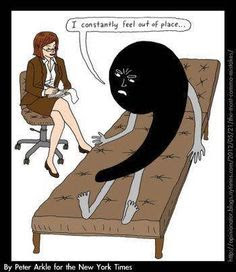The APOSTROPHE
or
It Is Still Greek to Many Folks!
Dear Readers, I know ALL of you will be big ans of this week’s blog. Surely you want to know more about the apostrophe and how to use it. Certainly, the beginning of summer (or it feels like summer) is a case for grammar! Please don’t go away. I’ll tell you how this choice was made. My good friend James (musician, composer, educator, and PhD, along with many accolades) sent me an email asking me to verify the current standard for making his name – James – possessive. [James wrote some new music. James’/James’s new music will be published soon.] Which one is correct? My immediate response was to go with the second choice – s’s. Since I am really not an authority (how do I get to be an authority anyway?), I should check my memory before giving my talented and erudite friend my opinion.
First, I go to Google. Eleven million hits in .39 seconds. Whew. Go back to Google and search for style manuals that are respected. Went to the bookcase, pulled out Strunk & White, Warriner’s, and Fowler’s grammar books. Blew the dust off the tops. Headed to the indexes (indices – OH, another day!!) for use of the apostrophe in names ending in “s.”
Now armed with Google printouts and my reference books--the three books listed above, a legal writing site, Chicago, AP (or NY Times), and APA style manual excerpts, I became a student again. OH, MY…I made a chart of who said what about which; I made a chart of which said what about plurals; I color-coded the charts. Fair WARNING – don’t, please, don’t go to British sites. They will muddle your mind for sure.*
The apostrophe is from the Greek word apostrophos meaning “a turning away of” or elision. The etymology for our English word is from Greek to Latin to French to English. This should tell us the apostrophe has a long and circuitous route to our usage today.
We learned, once upon a time in school, that the apostrophe is used for contractions: it is = it’s; do not = don’t.
We learned a second use of the apostrophe: to mark the plural of some plurals that are not words as such - “mind your P’s & Q’s.” HOWEVER (again) some grammarians argue that the apostrophe is superfluous.
 Which do you prefer on your child’s math homework: find all the 7’s or find all the 7s? Apparently, the answer is BE CONSISTANT. We used to write the 1970’s, but now the 1970s is preferred. Context has become the more important aspect say AP and Chicago style manuals.
Which do you prefer on your child’s math homework: find all the 7’s or find all the 7s? Apparently, the answer is BE CONSISTANT. We used to write the 1970’s, but now the 1970s is preferred. Context has become the more important aspect say AP and Chicago style manuals.
Also, I learned about ATTRIBUTIVES! The easiest examples are with holidays and organizations. Veterans Day – the plural word Veterans is NOT showing possession.
It is most closely associated to an adjective or modifier. The Chicago Manual of Style (15th ed.) says this is still a grey area. Is it the English Majors’ Society (a club belonging to English majors) or is it one of many societies and English majors is the modifier.
Most important to my friend James and to this blog is that we learned to show possession with apostrophes. John’s cat or Mary’s hat. Do not, we were admonished, use the apostrophe with possessive PRONOUNS – yours, his, hers, ours, its, theirs. I believe we had to memorize the list.
Most important to my friend James and to this blog is that we learned to show possession with apostrophes. John’s cat or Mary’s hat. Do not, we were admonished, use the apostrophe with possessive PRONOUNS – yours, his, hers, ours, its, theirs. I believe we had to memorize the list.
FINALLY, I have the answer for friend James. Okay, James, you may proceed! Use JAMES’S! If pronouncing the plural name sounds an –iz at the end, add the ‘s!
It can be stated (AP style) that the “s” after the apostrophe is dropped only if there are two or more sibilant sounds preceding the apostrophe: e.g. on Moses’ behalf. Jesus is special and the use of Jesus’ (just the apostrophe) is known as the liturgical archaism. (Good to know!!)
Thanks for wading through all this. And if your brain has been stretched as much as mine, remember it is happy hour somewhere!
Cheers, James!
P.S. *Muddling your mind in Britain. Place names rarely use apostrophes. St James Park. Glovers Road. NO apostrophes. This decision was standardized by the postal service and government. One paragraph in an article that was really funny explained how a student at a prestigious university went driving one day and spray painted apostrophes on road signs. Earned him a BIG fine and probation. HOWEVER, greengrocer markets still use the apostrophe to make plural their products for sale: tomato’s, bean’s, etc. It is known as--you guessed it--the “greengrocer’s apostrophe.” Just FYI.
P.S. *Muddling your mind in Britain. Place names rarely use apostrophes. St James Park. Glovers Road. NO apostrophes. This decision was standardized by the postal service and government. One paragraph in an article that was really funny explained how a student at a prestigious university went driving one day and spray painted apostrophes on road signs. Earned him a BIG fine and probation. HOWEVER, greengrocer markets still use the apostrophe to make plural their products for sale: tomato’s, bean’s, etc. It is known as--you guessed it--the “greengrocer’s apostrophe.” Just FYI.







The struggle is real. My son is named Jess.
ReplyDeleteThe struggle is real. My son is named Jess.
ReplyDelete